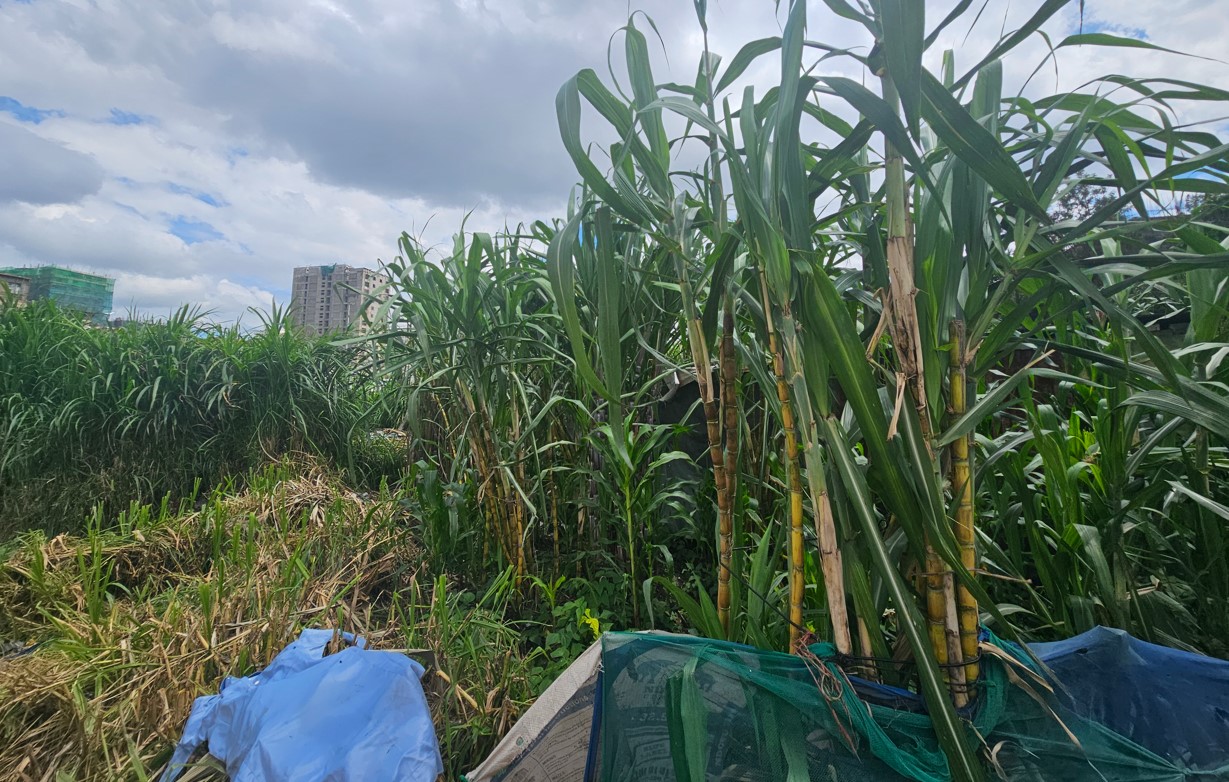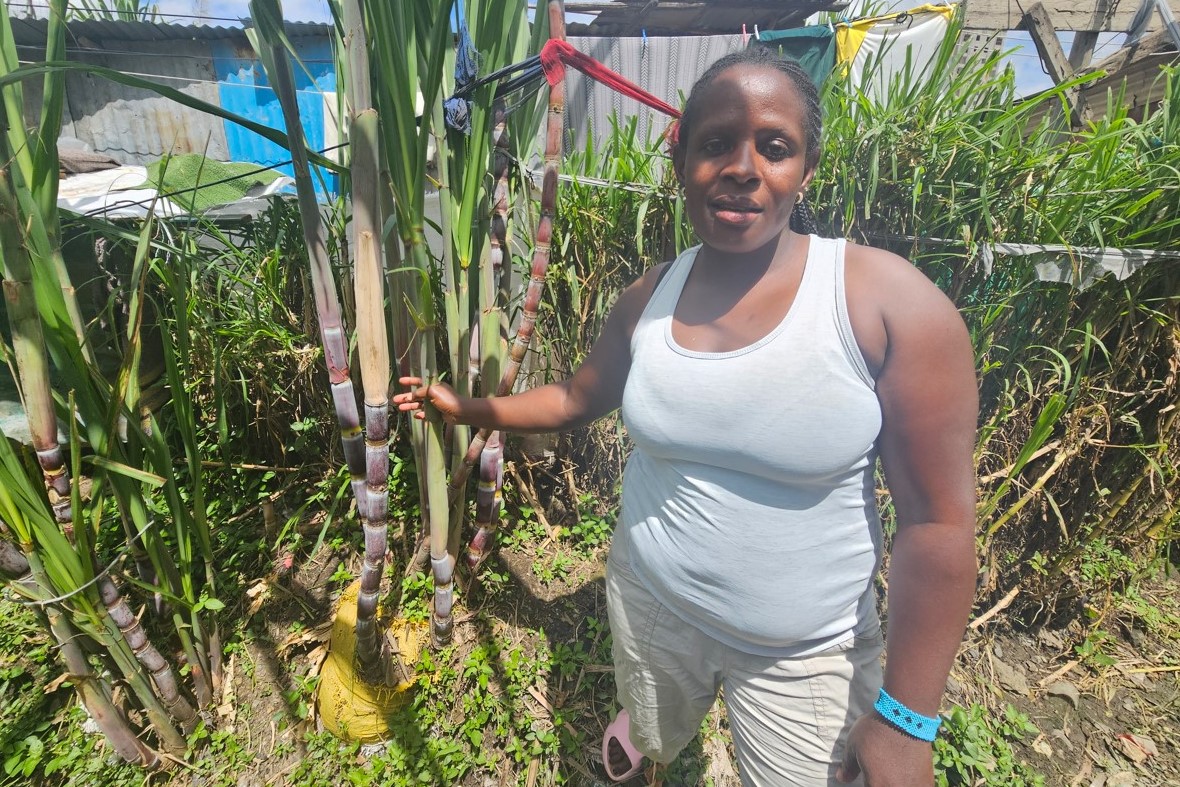Eastleigh sugarcane farmers savour sweet profits from the rare venture

Plots of land in Airbase Ward have been transformed into successful sugarcane farms by a group of industrious farmers
Have you ever wondered where the sugarcane sold on Eastleigh streets comes from?
For many, the assumption is that the sugarcane comes from traditional sugarcane-growing areas like Mumias, Kisii, Nyando, or Kakamega. But that is until you visit Eastleigh’s Airbase Ward where a group of enterprising farmers, both women and men, engage in commercial sugarcane farming.
More To Read
- Eastleigh businesses staring at losses from uncovered risks as many shun insurance
- Untold stories of Somali culture through pictures and art
- Business as usual in Eastleigh amid nationwide anti-Finance Bill demos
- Tarmacking of Eastleigh's Eighth Street a welcome boost for businesses
- James Nduati's 20-year journey to building Eastleigh charcoal empire
- A nostalgic journey into Eastleigh's 90s manyanga matatu culture
The sugarcane grown in Eastleigh is what most street vendors in this commercial neighbourhood sell.
Despite its commercial reputation, Eastleigh is home to several farms. Among the most notable ones are those located on Third Avenue's First and Second Streets, where crops such as maize, spinach, traditional vegetables, onions, and tomatoes are cultivated.
Unlike other crops primarily grown for personal consumption, the sugarcane harvested in Airbase Ward is meant for sale.
Jane Ngure is one of the pioneering farmers in this area. Since 2010, she has been a sugarcane farmer.
Speaking to The Eastleigh Voice from her farm, Jane explained how this venture has substantially improved her family's living standards and provided funding for her children's education.
"It's a good business. I have been able to pay the school fees for my children and take good care of my family," she said.
Jane moved to Eastleigh in 2009, having previously lived as a squatter on the site that now houses Kamukunji Technical and Vocational College.
When plans for the college's construction were announced, she and others were relocated to their current plots, where they began farming.
The lovely smell of new plants greets you as you enter Jane's farm, quickly letting you forget you're in Eastleigh, even though the estate's big buildings can still be seen in the distance.
Jane says she first brought the sugarcane seedlings from her home county of Bungoma after realising they could thrive in Eastleigh's climate and soil.
She grew a few stalks for personal consumption, but as they flourished, she expanded her cultivation to sell the produce.
Her first customers were her neighbours. Jane quickly recognised the possibilities for a business and began selling her sugarcane.
"At first they used to take it for free then I realised I could sell it to them and that is how I started this business," said Jane.
 Jane Ngure, one of the pioneer farmers in Nairobi's Eastleigh area. (Photo: Abdirahman Khalif/EV)
Jane Ngure, one of the pioneer farmers in Nairobi's Eastleigh area. (Photo: Abdirahman Khalif/EV)
Later, several of her neighbours decided to sell the sugarcane on Third Avenue in the evenings. Her farm was already providing employment not only for herself but also for her neighbours.
Jane currently sells each sugarcane stalk for Sh100, which is lower than sugarcane from traditional sugarcane-growing areas, which costs Sh200.
Limited by the size of her land, she sells up to 200 stalks a month, earning about Sh20,000.
Retailers across Eastleigh come to her farm from midday to select and purchase sugarcane, which Jane then harvests for them.
On the streets, retailers cut sugarcane stalks into pieces priced between Sh20 and Sh30, depending on size.
A stalk bought for Sh100 can be sold at Sh150, giving them a 50 per cent profit margin. One of these retailers is Michael Kizito, who visits weekly to buy stalks from Jane.
"I've been buying from Jane for six months now because it's cheaper and always available," Michael said. "Customers love it because it's sweeter when bought directly from the farm."
The climate and soil conditions in this part of Eastleigh are ideal for sugarcane farming. The well-drained loam soil and high temperatures provide a perfect environment for the crop.
Jane uses irrigation to ensure consistent growth, utilising water sourced from the nearby army Airbase, which reduces her reliance on rainfall.
Asma Munga, a mother of five, is another local farmer cultivating sugarcane in Eastleigh.
She ventured into sugarcane farming in 2020 after encountering difficulties with vegetable production. She found sugarcane-growing to be more profitable.
"Sugarcane offers better returns, which has satisfied me," Asma said.
One of the issues these farmers confront is that during the rainy season, flash floods sweep over their fields, inflicting significant damage and financial losses.
"Another problem we have is the small size of our land which limits our capacity to increase productivity. Moreover, the uncertainty of land ownership leaves us anxious about potential eviction," Asma explained.
Losing access to their current farming plots would imperil their livelihoods and endanger their housing stability.
Despite these adversities, these resilient farmers are dedicated to transforming urban spaces into thriving agricultural hubs.
Their efforts contribute to the local economy by supplying fresh produce and demonstrating their commitment to sustainable farming practices.
This localised agriculture highlights a hidden side of Eastleigh, where amid the commercial activity, a network of small-scale farmers is quietly sustaining livelihoods and supporting the local food supply.
Top Stories Today














































